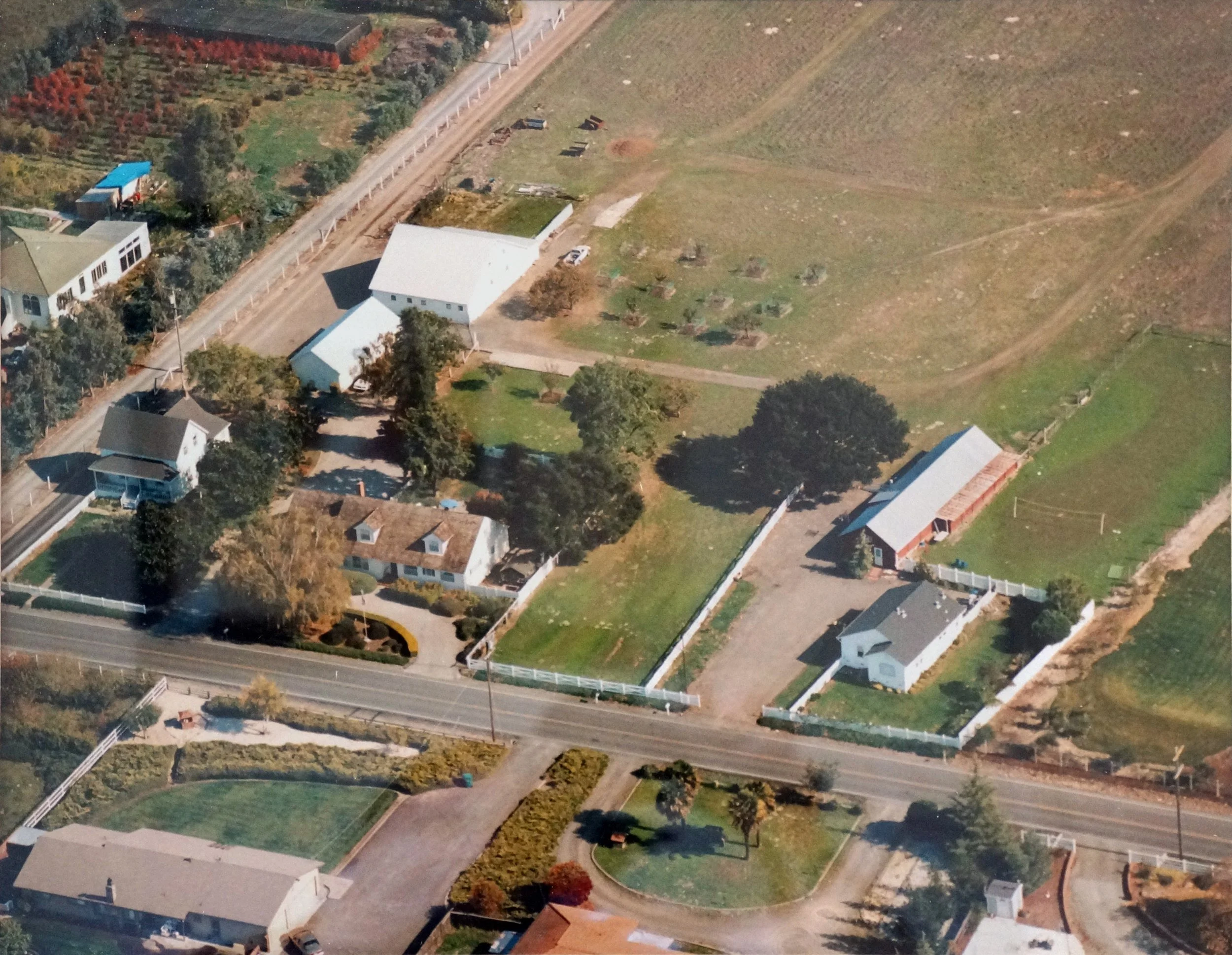
ROOTED IN HISTORY
As you arrive at Live Oak Farm, you are greeted by our namesake – a century-old, sweeping Coast Live Oak – a standing testament to the rich history of the property.
About 100 years ago, this land became known as the Bundesen Ranch. It was cared for by three generations of Bundesens who, we like to think, sought shade underneath the magnificent oak tree. As stewards of the land, they raised chickens, egg laying hens to be precise. Eggs, along with dairy, is one of the most dominant agricultural products historically contributing to West County’s economy. Did you know the egg incubator was invented in Petaluma in 1879? So much of Petaluma's identity is tied to poultry farming. At one time, Petaluma was recognized as “The Egg Basket of the World;” some people even called it “Chickaluma.” Still standing at the front of the property is the original 100-year old farmhouse. “Grandpa’s House” (pictured below) has now been restored to endure another century.
Today, Petaluma is still lovingly referred to as the “Land of Eggs and Butter,” and every Spring the town hosts the Butter and Egg parade, celebrating the rich community rooted in its agricultural heritage.
GROWING COMMUNITY
“If you build it, they will come.”
With a keen interest in food equity and the impact of industrial agriculture on the climate, Bay Area green energy entrepreneur Randy Goldstein set his eye on creating a community centered around a sustainable future. Paired with the desire to live a simpler life and build an energy efficient home, Randy purchased the 30-acre property in 2014.
The bold vision of the agrihood came to life through a collaborative process. Randy assembled a team of local experts including neighbors, community-based organizations, and civic leaders to seek input on the plans for the community. The foundational objective of the community remained clear: develop sustainable homes centered around a small working farm to connect residents to nature and healthy food.
Laying the foundation for the farm came first. 2015 was the farm's first growing season with a commitment to regenerative agricultural practices. Regenerative agriculture is foundational to the Agrihood. Transitioning to regenerative farming yields major improvements for the environment, such as improving soil, removing carbon from the atmosphere, and lowering water use. Over the past 10 years, the team has worked diligently to equip the community with lasting, sustainability-focused infrastructure. Water wells were dug, underground power lines were installed and finally the road was paved for Live Oak Farm Lane.
With the first new homes built in 2021 and 2022, the final step was to create a team of construction partners with the vision to continue the development of the agrihood. Wright Residential, a company of legacy builders in Sonoma, Napa and Marin counties was the ideal fit. The Agrihoods’ current residents occupy the four original farm houses, as well as the two recently built homes. New homebuyers are welcome to join the community featuring three nearly completed residences and four build-ready lots.
WHAT IS AN AGRIHOOD?
An agrihood is a new kind of neighborhood, where agriculture meets neighborhood.
Quite simply, an agrihood is a neighborhood built within a working farm. Uniting agricultural land use with residents who desire a better quality of life while addressing our need for a reconnection with the outdoors and where our food comes from. A neighborhood rooted in agriculture combines the health benefits of living in connection with nature, the emotional well-being experienced in community and the positive environmental impact of local, small-scale regenerative agriculture – with sustainable, responsible development of refined modern farmhouses.
In 2024, Live Oak Farm partnered with Sebastopol-based nonprofit Ceres Community Project, bringing their community garden model to Petaluma for the first time. Ceres and Live Oak Farm share an understanding of food and agriculture’s central role in personal and planetary health, and a commitment to regenerative growing practices. Ceres Community Project will provide hands-on learning opportunities for local youth while providing nourishing produce for Ceres’ clients. The gardens will be lovingly managed by the Ceres’ team and local volunteers.
As Randy says, “Ceres’ mission is completely aligned with Live Oak Farm’s core principles – supporting healthy local food production and building community. This partnership feels like a natural next step in the evolution of Live Oak Farm. We are literally a growing community.”










